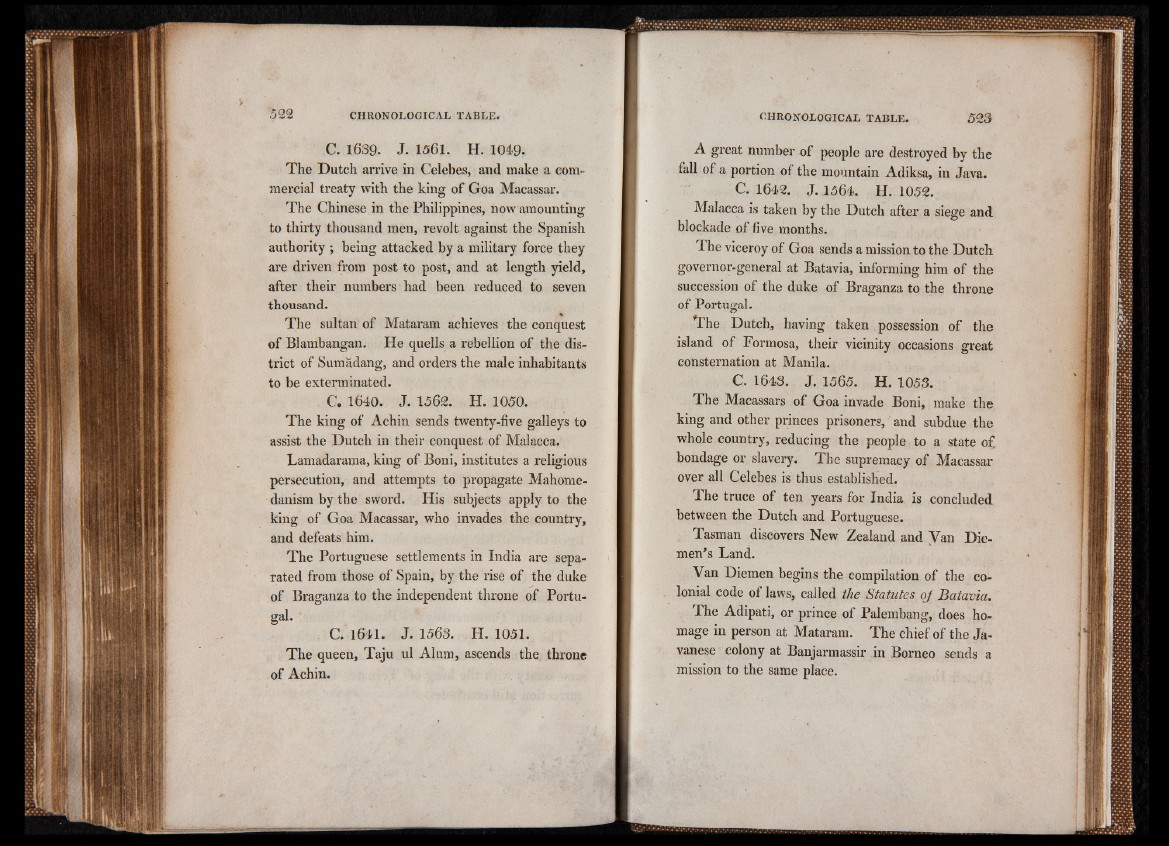
C. 1639. J. 1561. H. 1049.
The Dutch arrive in Celebes, and make a com«
mercial treaty with the king of Goa Macassar.
The Chinese in the Philippines, now amounting
to thirty thousand men, revolt against the Spanish
authority ; being attacked by a military force they
are driven from post to post, and at length yield,
after their numbers had been reduced to seven
thousand. The sultan of Mataram achieves the conq%uest
of Blambangan. He quells a rebellion of the district
of Sumadang, and orders the male inhabitants
to be exterminated.
C. 1640. J. 1562. H. 1050.
The king of Achin sends twenty-five galleys to
assist the Dutch in their conquest of Malacca.
Lamadarama, king of Boni, institutes a religious
persecution, and attempts to propagate Mahome-
danism by the sword. His subjects apply to the
king of Goa Macassar, who invades the country,
and defeats him.
The Portuguese settlements in India are separated
from those of Spain, by the rise of the duke
of Braganza to the independent throne of Portugal.
C. 1641. J. 1563. PI. 1051.
The queen, Taju ul Alum, ascends the throne
of Achin.
A great number of people are destroyed by the
fall of a portion of the mountain Adiksa, in Java.
C. 1642. J. 1564. H. 1052.
Malacca is taken by the Dutch after a siege and
blockade of five months.
The viceroy of Goa sends a mission to the Dutch
governor-general at Batavia, informing him of the
succession of the duke of Braganza to the throne
of Portugal.
The Dutch, having taken possession of the
island of Formosa, their vicinity occasions great
consternation at Manila.
C. 1643. J. 1565. H. 1053.
The Macassars of Goa invade Boni, make the
king and other princes prisoners, and subdue the
whole country, reducing the people to a state of
bondage or slavery. The supremacy of Macassar
over all Celebes is thus established.
The truce of ten years for India is concluded
between the Dutch and Portuguese.
Tasman discovers New Zealand and Van Diemen’s
Land.
Van Diemen begins the compilation of the colonial
code of laws, called the Statutes oj Batavia.
The Adipati, or prince of Palembang, does homage
in person at Mataram. The chief of the Javanese
colony at Banjarmassir in Borneo sends a
mission to the same place.